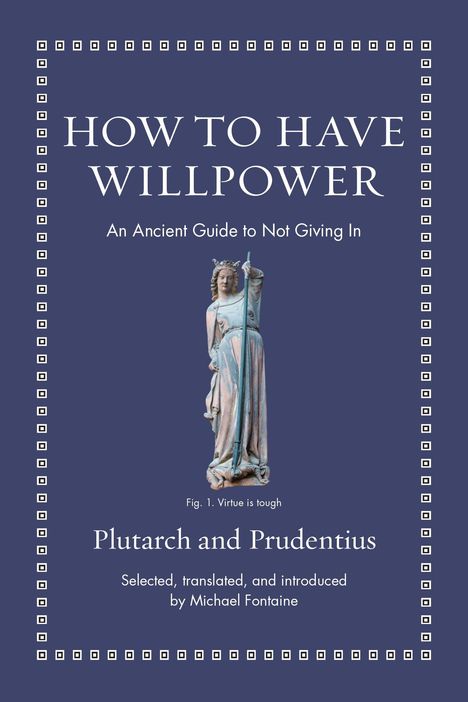Prudentius: How to Have Willpower, Gebunden
How to Have Willpower
- An Ancient Guide to Not Giving In
- Verlag:
- Princeton Univers. Press, 08/2025
- Einband:
- Gebunden
- Sprache:
- Englisch
- ISBN-13:
- 9780691220345
- Artikelnummer:
- 11982526
- Umfang:
- 195 Seiten
- Gewicht:
- 246 g
- Maße:
- 176 x 116 mm
- Stärke:
- 28 mm
- Erscheinungstermin:
- 12.8.2025
- Serie:
- Ancient Wisdom for Modern Readers
- Hinweis
-
Achtung: Artikel ist nicht in deutscher Sprache!
Klappentext
Lively new translations of two classical works that offer wise advice about how to resist temptationHow to Have Willpower brings together two profound ancient meditations on how to overcome pressures that encourage us to act against our own best interests-Plutarch's essay On Dysopia or How to Resist Pressure and Prudentius's poetic allegory Psychomachia or How to Slay Your Demons. Challenging the idea that humans are helpless victims of vice, these works-introduced and presented in vivid, accessible new prose translations by Michael Fontaine, with the original Latin and Greek texts on facing pages-emphasize the power of personal choice and the possibility of personal growth, as they offer insights and practical advice about resisting temptation. In the spirit of the best ancient self-help writing, Plutarch, a pagan Greek philosopher and historian, offers a set of practical recommendations and steps we can take to resist pressure and to stop saying "yes" against our better judgment. And in a delightfully different work, Prudentius, a Latin Christian poet, dramatizes the necessity to actively fight temptation through the story of an epic battle within the human soul between fierce warrior women representing our virtues and vices. Plutarch and Prudentius insist that we allow pressure or temptations to get the best of us. But they also agree that we can do something about it. And their wisdom can help.
Biografie (Plutarch)
Plutarch (ca. 45-125 n. Chr.) stammte aus einer wohlhabenden Familie in Chaironeia, Böotien. Er studierte Philosophie in Athen. Reisen nach§Kleinasien, Alexandria und Rom unterbrachen seine beschauliche Gelehrtenexistenz in der Provinz. Er war ein äußerst produktiver Schriftsteller, der neben den berühmten Biographien Schriften populärphilosophischen Inhalts und zu Fragen des alltäglichen Lebens verfasste.

